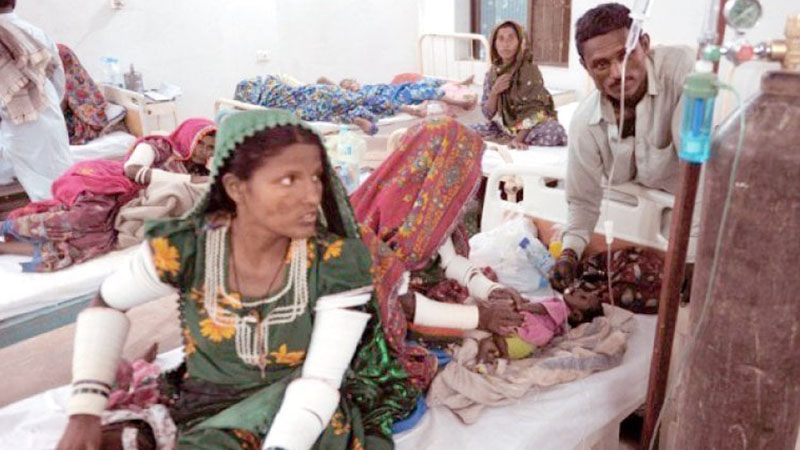Amidst global efforts to advance sexual and reproductive health and rights, Pakistan stands at a critical juncture in its journey to eliminate preventable maternal deaths. According to the latest findings unveiled by the United Nations Population Fund (UNFPA) in its annual report titled “Interwoven Lives, Threads of Hope: Ending Inequalities in Sexual and Reproductive Health and Rights,” Pakistan could potentially eradicate preventable maternal deaths after 122 years if current trends persist.
Despite significant strides in sexual and reproductive health and rights globally, millions of women worldwide still lack access to these fundamental services. The report underscores the urgent need for an inclusive approach to address existing disparities, highlighting how discrimination impedes progress in sexual and reproductive health for women and girls across various regions.
A staggering reality revealed in the report is that over half of all preventable maternal deaths occur in countries facing humanitarian crises and conflicts, amounting to nearly 500 deaths per day. This sobering statistic underscores the urgent need for action to address structural inequalities and ensure access to essential healthcare services for women and girls worldwide.
The year 2024 marks the 30th anniversary of the International Conference on Population and Development (ICPD) in Cairo, where governments committed to prioritising sexual and reproductive health and rights in sustainable development agendas. However, progress towards these goals remains threatened by persistent challenges.
In Pakistan, less than one in three women have decision-making power regarding their sexual and reproductive health, underscoring the need for targetted interventions to empower women and girls. Women with disabilities face even greater risks, with up to 10 times higher likelihood of experiencing gender-based violence compared to their peers without disabilities.
Speaking at the report’s media launch in Pakistan, Dr. Luay Shabaneh, UNFPA’s country representative, emphasised the importance of enabling every young person to fulfill their potential in health, education, and well-being. With over 50 per cent of Pakistan’s population under the age of 19, investing in youth empowerment is crucial for the country’s future prosperity.
Despite progress in some areas, significant disparities persist, particularly in access to healthcare services. Universal Health Coverage (UHC) remains low at only 21pc in Pakistan, with maternal mortality rates remaining alarmingly high. Women in rural areas face additional barriers to accessing timely healthcare, contributing to the slow progress in maternal health outcomes.
The report underscores the importance of tailoring interventions to the specific needs of communities and empowering women and girls to drive innovative solutions. Furthermore, investing an additional $79 billion in low-and middle-income countries by 2030 could avert millions of unplanned pregnancies, save lives, and generate significant economic benefits, highlighting the potential impact of targetted investments in sexual and reproductive health and rights.
